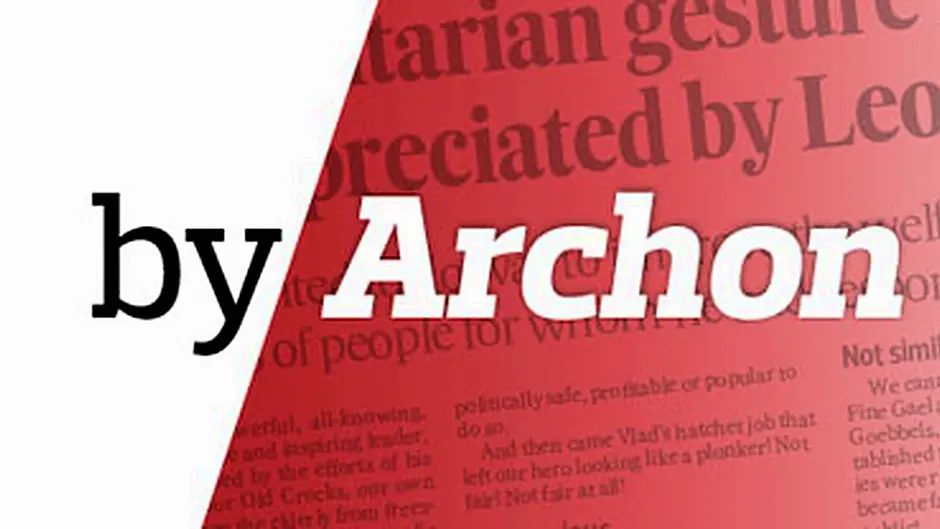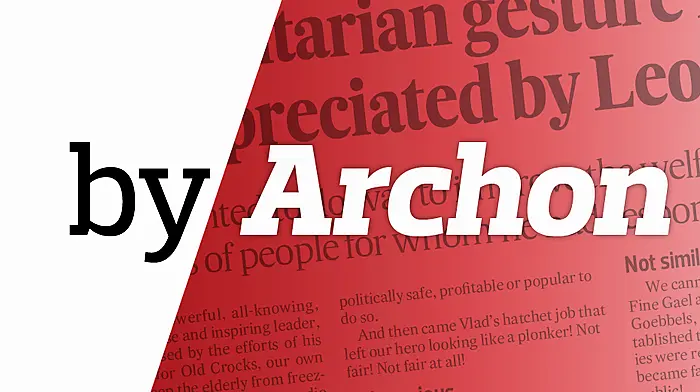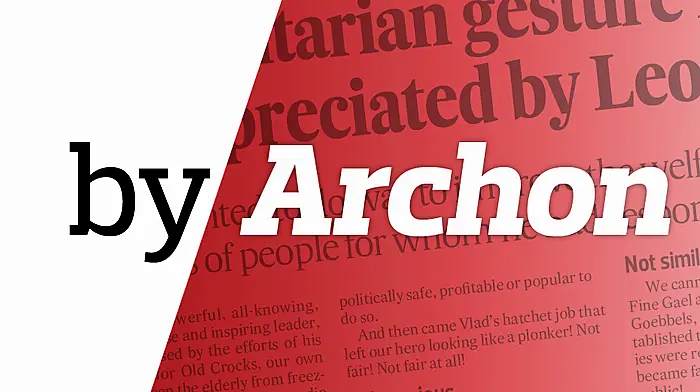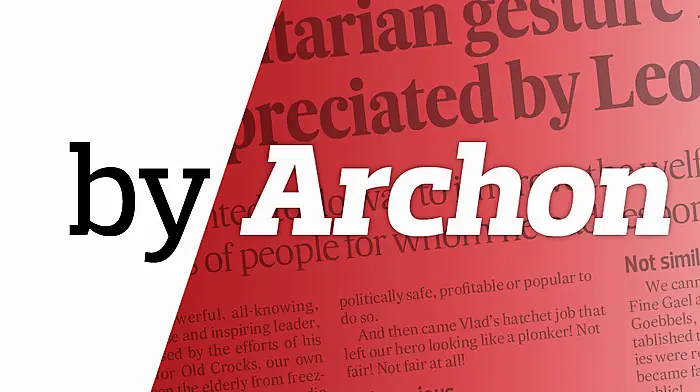FLOATING around Bantry the other day was the ghost of King John of England. Local business people had unwittingly released The Royal Spectre – not that the poor chap intended any harm. He did plenty of that, when alive, way back in the 12th century!
The reasons for the spooky Plantagenet visit to Bantry were stranger and more gripping than any suggestion that he might have been lost and looking for the tourist office.
You see, central to the haunting of West Cork by King Johnnie’s disembodied spirt (Robin Hood was among his many enemies) is the battle currently taking place between traders, pedlars, hawkers and the local authority. At issue are ancient country-market style practices and laws. Implemented by the King centuries ago, they’ve now become a bone of contention!
Casual traders have invoked the laws of King John to bolster their argument in a potential legal challenge to any limitations on their trading rights. And, they say, if the Council’s plans are implemented, a tradition in West Cork relating to the sale of goods in a country market-type environment will be wiped out.
Cork County Council argues the need to introduce firmer regulations based on the 1915 Casual Trading Act.
New by-laws
As for the local politicians, well, they want casual trading regulated and trading spaces clearly defined and selected by the Council. They assert that the Council is the only body entitled to regulate casual trading and street markets and that the proposed changes, if done correctly, can enhance an urban area.
Traders, including local farmers and people who occasionally bring goods for sale, will be required to apply for an annual licence and to fill in detailed forms that comprehensively describe their activities. The new bye-laws inevitably will lead to increased insurance costs and heftier licence fees, as well as payment for the locations occupied.
Importantly, trading bays will be allocated only to those who are licensed to trade.
Here are some of the bureaucratic details: A ‘casual trading fee’ payable to the Council is to be determined from time to time by the Council.
The Council would operate the trading areas on a ‘not-for-profit’ basis and its regulations would take into consideration the costs of holding casual trading in Bantry.
Casual traders would carry out business within a space allocated by the Council, which is to be identified by a paint marking.
No amplified broadcasting of music can take place unless permitted by the Council. Also verboten is ‘unacceptable behaviour’ which includes verbal abuse, physical abuse, and menacing behaviour. Nor would bouncy castles be permitted!
Historical memory
Foodstuffs allowed for sale include hot dogs, burgers and other ‘fast foods.’ Under the category of ‘slow foods’ are veggies, fish, olives, cakes, jams, honey, etc. Then there are the inevitable ‘crafts’ such as jewellery, weaving, ceramics, knitting, soaps, pottery, bric-a-brac, plants, antiques, etc. No change there.
An interesting consequence of the current debate is that whatever about the day-to-day issues relating to country markets and local markets, information on King John’s regulations now has been firmly planted in West Cork’s historical memory.
As a result, Bantry traders have discovered that several towns and villages are lucky benefactors of ancient royal decrees that entitle them to hold markets wherever they like! Which must have Tom Barry whirling in his tomb because despite his derring-do (Crossbarry, Kilmichael, etc) and his putting the kybosh on imperialist rule in West Cork, the King’s writ actually never really ceased to operate in that neck of the woods!
In brief, the royal prerogative – a body of customary authority, privilege, and immunity, which is recognised in British common law – permitted Bantry and other towns to sell items such as garden implements and that famous chutney made by hippies half-ways up Musheramore.
In other words, because of the Free State’s failure in the early years of independence to declare invalid those Royal decrees that were enacted as far back as the 14th century, such legislation, theoretically, still has legitimacy and it outranks the judicial demands of this State.
Canny legal eagles
As a result, canny legal eagles are now arguing that King Johnny’s decrees have remained binding as legal documents even if they date back hundreds of years.
Some traders also are of the opinion that, because markets have been taking place in some towns for centuries – all under a benign Royal and Republican eye – hawkers have the right of custom to continue the practice wherever they like!
The matter eventually will be decided by the courts. A group in Bantry has mounted a test case which is to be heard in the High Court. Consequently, everything is now on hold until the result of the legal action is known.
The local authority, naturally, will be hoping that new legislation will declare ancient market rights from the days of King John to be null and void, and that the way can be cleared to implement ‘casual trading’ by-laws that embody current Council recommendations.
To reinforce its case, the Council has engaged an historian to research medieval laws relating to local markets in West Cork. The report has yet to be made public. In the meantime Bantry folk and those of other West Cork towns are honing up on the historical antics of King John – legal and otherwise. They’re also practising their Middle English. Just in case!
Indomitable spirit!
And now for something different: Although we’re in the middle of the Covid-19 crisis, jokes (not necessarily macabre jokes, or ones in bad taste) in some respects are protecting us from a very disturbing reality.
It’s as if people seek relief in humour as a sort of collective therapy and a shared experience. People under Coronavirus ‘house arrest’ seem to be the most assiduous purveyors of funny/unfunny jokes.
Here are some examples:
Why don’t chefs find coronavirus jokes funny? They’re in bad taste.
Why didn’t the sick guy get the joke? It flu over his head.
I’ll tell you a coronavirus joke now, but you’ll have to wait two weeks to see if you get it.
And this rather cerebral one: What’s the difference between Covid-19 and Romeo and Juliet? One’s the Coronavirus and the other is a Verona crisis.










